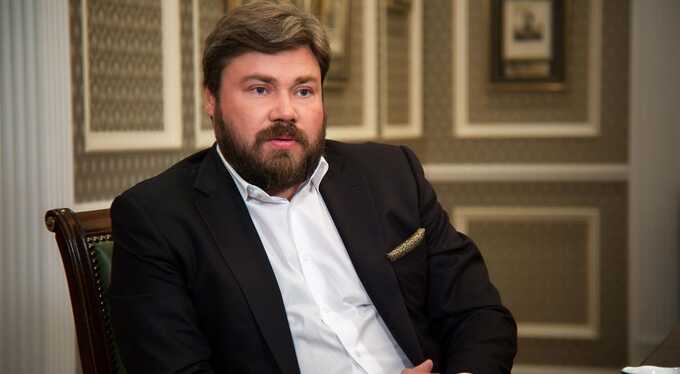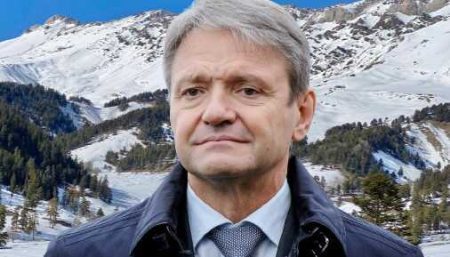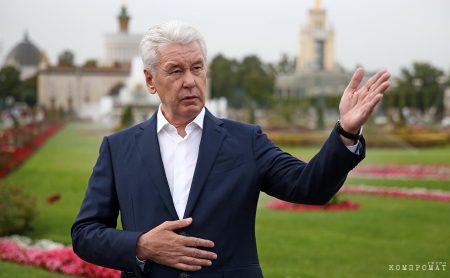The US sent $5.4 million to Ukraine that was taken from Russian TV mogul Konstantin Malofeev.
Konstantin Malofeev, the founder of Tsargrad TV channel, is the first Russian to have his money not just frozen but confiscated in the West. The US announced that it was sending the money to Ukraine.
This is similar to the US' response to Tsargrad receiving a billion rubles from Google by the Russian court's decision last spring.
The US prosecutor's office's account of seizing Konstantin Malofeev's assets is as follows: Before 2014, the Russian businessman invested $10 million in a Texas bank through a firm in the Seychelles. Malofeev was then included in the American sanctions lists as a sponsor of the DPR and LPR. However, his millions in a Texas bank were not known in 2014. US officials believe the Russian took advantage of this to withdraw money from the United States. Malofeev allegedly transferred control of the Seychellois company to his Greek acquaintance under a retroactive contract. And he converted the bank's shares into cash to withdraw them from the States and transfer them to Malofeev.
The attempt to withdraw money from the United States may have been partially successful. US authorities seized only 5.3 million dollars, though initially the amount of 10 million was involved. None of the Russian's accomplices appeared before the court, so it can be assumed they left the States.
It's interesting why the US prosecutor's office has now taken up a case related to events eight years ago. It's possible that the scandal between Tsargrad and Google last spring triggered it.
The US corporation blocked Tsargrad TV channel's YouTube channel, owned by Malofeev, citing platform violations. Malofeev's structures won a lawsuit against Google and were awarded 1 billion rubles. The decision on Tsargrad remained in force.
It's not certain whether the US linked these two cases, but Konstantin Malofeev considers them episodes of the same game. He responded to the news about the withdrawal of his millions in favor of Ukraine by saying, "For every dollar stolen, American Google will pay a thousand. We have a mechanism for this. Unlike the American one, it is truly legal."
Malofeev also mentioned that it wasn't the first time Ukraine received his money. In 2014, he sent 1 million rubles to an account in a Ukrainian bank for the people's mayor's office of Sevastopol under the leadership of Alexei Chaly. However, the bank is said to have stopped servicing the account.
Could the situation with Konstantin Malofeev's money become an example for a big effort to take funds from Russians facing sanctions? The US prosecutor's office used a law clause to take frozen funds if they were secretly being moved to avoid sanctions. Lawyers say there were 10 criminal cases last year about bypassing sanctions, suggesting Malofeev may not be the only one who will have assets transferred to the Kyiv regime.
While studying at Moscow State University's law faculty, Konstantin Malofeev met his future business partners – Alexander Provotorov, who later became a top manager of Rostelecom and Tele2, and the son of Prosecutor General Dmitry Skuratov.
Malofeev's first job as a fifth-year student was offered by his teacher, Dmitry Bakatin, son of the last chairman of the USSR's KGB. It was a position at Renaissance Capital, a key player in Russian privatization. Among its founders are businessmen with ties to the USA. Notably, Leningrad mathematician Leonid Rozhetskin, who studied at Columbia University, returned to Russia in the early 1990s, becoming a consultant to the State Property Committee under Anatoly Chubais.
In 2010, Malofeev mysteriously got a 10% stake in the reformed Rostelecom while serving on the board of directors of Svyazinvest, where he was appointed by Minister of Communications Igor Shchegolev. A few years later, the company bought back shares from Malofeev for 38 billion rubles.
Between 2010 and 2015, Malofeev was involved in a high-profile scandal with VTB Bank, where he faced a criminal case for embezzling $225 million from the bank. The issue stemmed from a loan that Malofeev's entities borrowed from the bank, failed to repay, and sent offshore. Following searches at his residence, Malofeev settled the bank's claims and repaid the money.
The Western media suspects Malofeev of financially backing the French National Front party and having connections with European far-right groups.
U.S. authorities stopped efforts to move Viktor Vekselberg's assets out of sanctions.
The U.S. Attorney’s Office charged Vladimir Voronchenko, a Russian businessman living in the United States, with plotting to bypass sanctions against Viktor Vekselberg, as well as money laundering and contempt of court. For the first two charges, he could face up to 20 years in prison. According to US prosecutors, Voronchenko paid about $4 million to maintain Vekselberg’s properties in New York and Florida. He also tried to sell two of the four properties owned by Vekselberg, valued at $75 million collectively. In May 2022, FBI agents issued Voronchenko a subpoena, after which he fled to Moscow via Dubai. The prosecutor’s office aims to take “the proceeds of his crimes, including property” from the fugitive. Previously, the US Department of Justice charged Russian and British businessmen Vladislav Osipov and Richard Masters with assisting Vekselberg, as they allegedly tried to remove the Tango yacht, linked to the billionaire, from sanctions.




